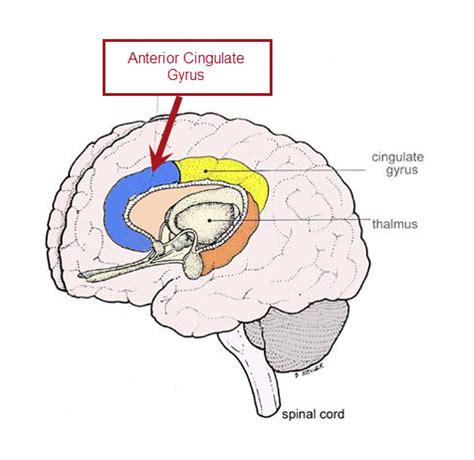 Difficult emotions are a part of life. How do we deal with them? Let's get geeky. We have the pre-frontal cortex, the limbic system. Simply said, our more evolved, newer part of our brain, this rules compassion, problem solving etc. The limbic system has to do with our stress response and safety. Now bring in the anterior cingulate gyrus! This part of our brain is between those two parts of our brain, it is key to how we regulate our more difficult emotions, like a bridge between the two parts of the brain. We know that the parts of the brain are not really separate! Just like our body, it functions TOGETHER. Think of this as a bridge, between the emotions that have to do with survival, envy, pride, dread, fear and the "higher" emotions, compassion, hope etc. When one aspect is out of balance, then the whole system is affected. When we have trouble self-regulating, we may have trouble with substances, overeating, Mindless coping mechanisms (if you will), and simply dealing. (this is courtesy of Dr. AMen, book: change your brain change your life.). We may then be more negative, and tend to be sad. How can we heal this part? How do we deal with difficult emotions? Dr. Amen breaks our mental/ brain health down to four aspects: 1. Biological 2. Psychological 3. Social 4. Spiritual Simplified: Our resilience, whether we react negatively, positively to change is important. The ACG has a lot to with whether we are positive or negative. Have you ever noticed those who tend to see the bright side of life? Things seem to go better for them, and they are happier. Dr. Amen states that when our limbic system is more active, we see things more negatively. It makes sense, when we are chronically stressed, it can feel very draining, and it can feel hard to stay positive. That is one great thing about meditation, we can calm our stress system, and within 5-15 minutes feel more positive. Among some of my favorites are the first step of neurosculpting ®, where we focus on our needs being met, and feeling safe, and an exercise of "running energy". For me simply imagining colors, vibrations and "clearing energy" helps me feel more positive. Mindful movement, yoga, walking, being outdoors, focusing on the positive and beauty are helpful too! What are things you can think of that help you shift your perspective? My biggest takeaway is that noticing our thoughts and emotions, when we feel too much of any emotion, it can be a sign that we aren't regulating, that something is off. What is a time you can think of where you felt Off? Too sad? Even overly happy? That sounds strange, but it is true. 1. Recognize your emotion. 2. Do you perceive it as positive or negative ? 3. How can you shift it if it is negative ? 4. Listening to music, looking at pleasant photos, dancing, good smells, all those things are examples of how we can shift? We can think of the space behind our forehead as a drivers seat, where we perceive the world, it can be colored by experiences, thoughts, beliefs, perceptions. That is one way that we do have a say in our reality. You might here the phrase, "we control our reality " . We do, in our perceptions and how we respond. To read more by Dr Amen, here is the link. And here is his website. I offer private, custom Meditation and Neurosculpting ® sessions. Please, contact me with questions, Stefanie Rothert
0 Comments
Leave a Reply. |



